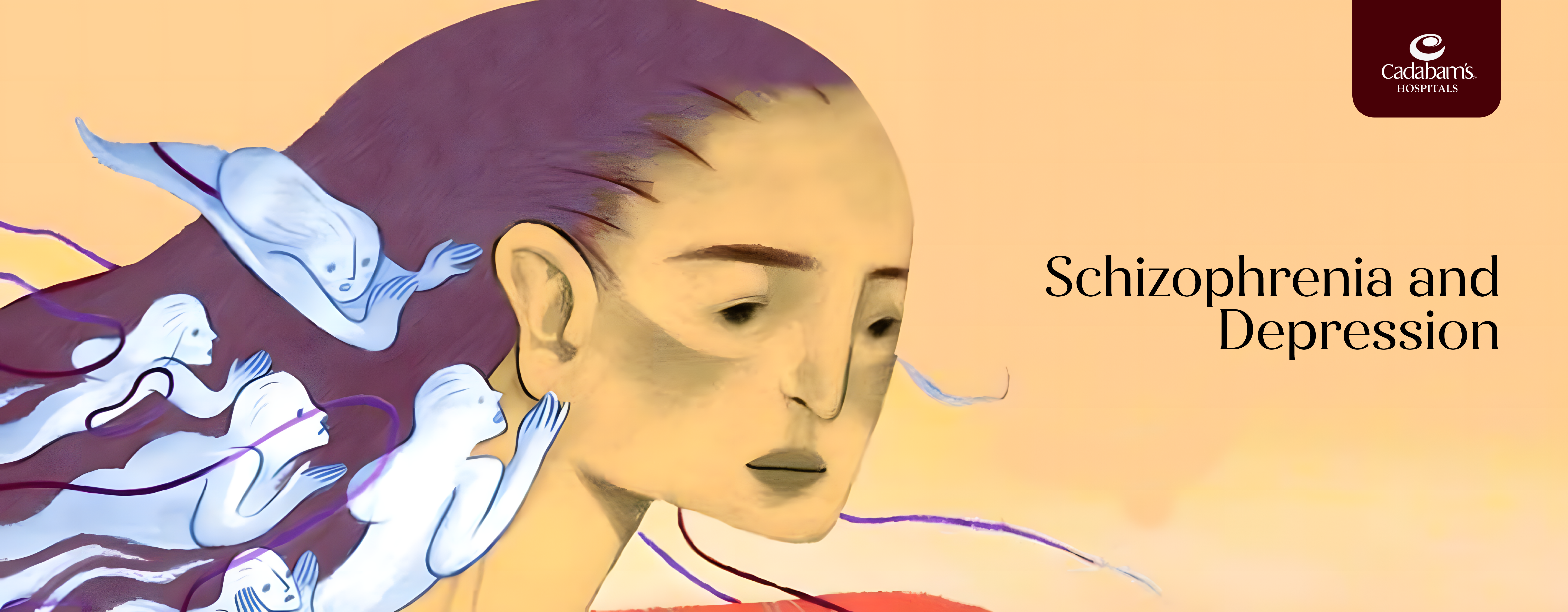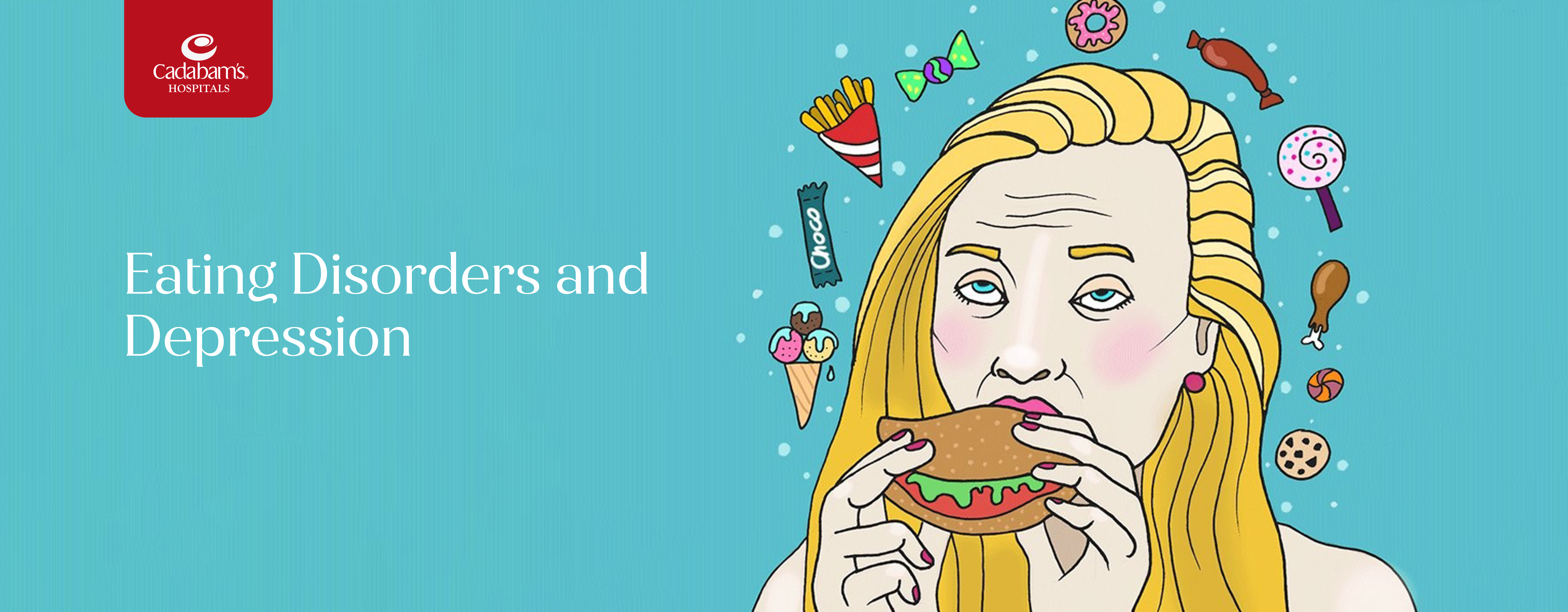What is Biofeedback Therapy?
Real-time feedback is provided via biofeedback treatment, which tracks your body’s stress, tense muscles, and breathing patterns using sensors. This will not only assist to lessen your anxiety but also help to manage your symptoms as you learn to manage your own emotions and moods that contribute to your stress. By raising your awareness of how your body reacts to different stressors, Cadabam’s biofeedback enhances your general well-being.
The Science Behind Biofeedback
Depression biofeedback therapy involves both physiological and psychological aspects. It acknowledges the effects of depression on the body and mind.
Therapists utilise biofeedback treatment to assist their patients become more aware of the physiological reactions of their body to various stresses, including heart rate, tense muscles, and breathing patterns.
Biofeedback vs. Traditional Therapies
The psychological and behavioural components of depression are addressed by conventional therapeutic approaches such as dialectical behaviour therapy (DBT), family and group therapy, and cognitive-behavioral therapy (CBT). With Cadabam’s biofeedback, stress response self-regulation is taught via real-time physiological data.
The goal of traditional treatment is to find and gradually change the behaviours and underlying causes of the illness. Our focus on biofeedback technology enables experts to identify distinct triggers and offer appropriate suggestions.
Safety and Efficacy of Biofeedback
Biofeedback treatment can be used safely by experts who have the necessary skills and knowledge. It employs non-invasive sensors to track physiological responses including heart rate and muscle tension. According to studies, it can aid in the treatment of pain, stress, anxiety-related diseases, and other depressive symptoms.
Our biofeedback enhances regular treatment by teaching coping skills and symptom control techniques. The efficacy of it is determined by how it interacts with other medicines and specific conditions.
How Biofeedback Transforms Depression Treatment in Hyderabad
People who receive biofeedback from a qualified professional can access real-time data and have control over their responses. Biofeedback helps each person understand and manage the pressures and triggers that lead to their condition by using information such as skin conductance and heart rate variability.
This self-regulation training can enhance resistance to trigger events and aid in long-term healing. Usually used with conventional and complementary therapeutic approaches, biofeedback guarantees a full recovery based on the patient’s specific needs.
The Process of Biofeedback Therapy: What to Expect
Biofeedback therapy at Cadabam’s Hyderabad starts with a physiological indicator assessment. Each person’s views, feelings, and suggestions are respected and considered by our biofeedback therapist.
Throughout the therapy session, the therapist will apply a sensor to your body to monitor your heart rate, breathing patterns, muscular tension, and brain waves. Your responses are gathered in real-time and shown on the computer screen.
Therapists will educate each patient on these feelings and the connection between them and harmful behaviours. Relaxation and mindfulness practices teach everyone how to control their body’s responses.
To encourage continued recovery, therapists track clients’ progress and modify their methods as needed. The procedure promotes stress-reduction strategies and self-awareness, both of which improve overall health.
Benefits of Biofeedback for Depression patients
Biofeedback, which uses awareness of physiological reactions, offers a transforming road to treatment for depression patients. This treatment enables people to manage stress, minimise mood swings, and improve their general well-being by concentrating on tailored strategies and regular monitoring.
Enhances Emotional Regulation and Stress Management
The fundamental purpose of biofeedback treatment is to manage mood and stress levels. Biofeedback teaches people how to monitor and regulate physiological reactions, giving them the skills they need to manage their emotions and reduce stress. This promotes general well-being and long-term rehabilitation.
Improves Symptom Management
By training patients with depression to keep an eye on physiological markers like heart rate, breathing patterns, and brain waves, biofeedback enables them to better manage their symptoms. This makes it possible for people to identify stress and mood swings at an early age, allowing for preventive actions that improve symptom management.
Boosts Patient Engagement and Self-Awareness
One of the main features of biofeedback technology is its ability to give instant feedback depending on a person’s responses. This therapy encourages active engagement in treatment by providing real-time feedback on physiological responses, such as heart rate and muscle tension. By doing this, people may discover how their bodies respond to stress and other stressors.
How Biofeedback Complements Traditional Depression Treatments
Unlike traditional therapy, which often focuses on behavioural and psychological elements, biofeedback for depression adds an equally significant psychological component. It tracks your body’s reactions, such as heart rate and tense muscles, and utilises this data to increase the effectiveness of conventional therapies.
This approach helps patients better manage stress and triggers, control their emotions and tension, and strengthen and enhance traditional therapeutic procedures.
Navigating the Biofeedback Process for Depression in Hyderabad
To provide effective therapy, knowledgeable and experienced specialists must make sure that each person goes through each stage of biofeedback precisely and attentively. It is everyone’s right to be informed about the nature and process of biofeedback treatment while they are in recovery. As a result, they ought to have enough time to be ready and keep up with its procedures.
Steps Involved in Biofeedback Therapy
An assessment of physiological indicators, such as heart rate, muscle tension, breathing patterns, and brain waves, precedes the commencement of a typical biofeedback therapy session. Following that, patients get biofeedback techniques and training on these reactions.
Patients rehearse several tactics during the session and receive real-time physiological feedback. To guarantee the effectiveness of the therapy, therapists evaluate the client’s development, adjust their tactics as needed, and offer continuing support.
Patient Preparation and Involvement
Patients can better prepare for their biofeedback sessions by understanding the therapy’s aims and methodology. They learn to recognise physiological reactions like heart rate and muscle tension. Patients actively engage in their sessions by learning relaxation methods and paying attention to their body’s messages.
Monitoring And Interpreting Biofeedback Results
During sessions, therapists examine physiological reactions using real-time biofeedback data. This data is examined to determine stress levels and trigger reactions. These findings allow therapists to adapt relaxation and self-regulation therapy.
Customising Biofeedback Therapy for Individual Needs in Hyderabad
Personalised biofeedback therapy typically considers cultural context and particular physiological reactions. This strategy increases efficacy by addressing triggers that are specific to everyone’s experience and surroundings.
Assessing Individual Patient Needs
Therapists first do comprehensive evaluations to identify the patient’s physiological responses and psychological triggers before utilising biofeedback to treat depression.
For identifying specific stressors and selecting the most effective biofeedback modalities (skin conductance, heart rate variability, etc.), these early evaluations are crucial. By enhancing the patient’s ability to self-regulate, this tailored approach aids in their recuperation.
Developing Personalised Biofeedback Plans
Following preliminary physiological response evaluations, certain biofeedback techniques, such as heart rate and electromyography, are chosen to treat stress and emotional regulation.
These strategies are used with traditional medications to give a tailored strategy depending on the patient’s needs. This strategy supports long-term recovery by strengthening coping strategies and increasing self-awareness.
Adjusting Therapy Based on Patient Response and Progress
Depression biofeedback therapy is constantly modified to the patient’s response by monitoring physiological data and measuring emotional control and stress management changes.
Biofeedback protocols are altered as needed to maximise outcomes, especially when some triggers are not immediately obvious or look exaggerated at first.
Integrating Biofeedback into Holistic Depression Care in Hyderabad
There is no universal treatment for depression. The therapist will include biofeedback and holistic care in the treatment plan to enhance the present treatment. The outcome may differ based on the patient’s condition.
Role Of Biofeedback in A Broader Treatment Plan
While cognitive behavioural therapy (CBT) and dialectical behaviour therapy (DBT) primarily address psychological and behavioural aspects of treatment, biofeedback therapy for depression incorporates physiological elements that help patients become more conscious of their body’s reactions and teaches them how to handle stress. This allows patients to take an active role in their own recovery.
Holistic care considers all facets of well-being and provides coping skills that decrease mood swings and triggers, enhance mental health, and lower the risk of relapse.
Collaborating With Mental Health Professionals
Mental health specialists are critical in treating the underlying psychological reasons for depression, such as stressful situations or socioeconomic status.
Their expertise ensures that biofeedback therapies are seamlessly integrated into comprehensive therapy programs, therefore improving coping skills and emotional resilience. This cooperative approach improves therapeutic outcomes by treating both the mental and physical components of depression recovery.
Ensuring a Multidisciplinary Approach to Care
A multidisciplinary strategy tackles both the mental and physical dimensions of depression. As an adjunct to conventional treatments such as therapy and medication, biofeedback aids in achieving sustained mental well-being by enhancing self-regulation and stress control.
This holistic integration offers tailored resources for enduring recovery and overall wellness, ensuring thorough support for every individual.
Cadabam’s Hospital: Pioneering Biofeedback Therapy for Depression in Hyderabad
Cadabam’s Neuromodulatory Services (CNS) provides biofeedback and other services to individuals seeking treatment for depression. You may find an array of cutting-edge technology at your fingertips, boosting your mental health via tailored and comprehensive therapy.
Our skilled team of psychologists, therapists, and experts offers personalised biofeedback sessions to assist patients in efficiently managing depression-related stresses, reducing stress and anxiety, and improving sleep.
Our Expertise in Biofeedback Therapy for
Our experts have extensive training and understanding of the relationship between physiological reactions and how they aggravate depression symptoms. Our expertise allows us to successfully incorporate biofeedback techniques into individualised treatment regimens, allowing patients to improve their quality of life and manage stress as they heal.
Assessment and Personalised Treatment Planning for Depression
Our mental health professionals do thorough assessments that consider the physiological, psychological, and social factors influencing the development of depressive symptoms. From there, they design therapy plans specifically tailored to each patient’s requirements.
These programs include relaxation techniques with a range of conventional therapies, including CBT, DBT, family counselling, medication, holistic practices like yoga and meditation, and other creative therapies like dance or music therapy. This comprehensive approach aims to encourage a good recovery and overall well-being.
State-of-the-Art Facilities and Supportive Environment for Depression
Our facility features state-of-the-art equipment, cosy areas designed specifically for biofeedback sessions, and well-appointed treatment rooms that are focused and quiet, which enhances the efficacy of biofeedback procedures for reducing stress and improving mood.
Ongoing Support and Monitoring for Depression
We provide institutional materials, support groups, and connections with other like-minded people for individuals needing biofeedback therapy for depression. Our therapists also conduct one-on-one counselling to help individuals get the most out of their biofeedback applications.
Comprehensive Care Approach at Cadabam’s for Depression
Our treatment plan for depression at Cadabam’s extend beyond the therapy sessions by providing stress reduction techniques, mood enhancement, individualised therapeutic methods, access to support group, and tools that assist individuals in navigating and managing depression symptoms.
Our therapists offer guidance to family members on how to help their loved one’s road to recovery while also taking care of themselves, since depression may have a ripple effect on the entire family.
Other Treatment Options Available for Depressions
FAQs
How does biofeedback therapy help in depression management?
By tracking heart rate, breathing patterns, and muscular tension, biofeedback treatment for depression helps patients become more conscious of how they respond to stresses, which ultimately helps reduce stress and elevate mood.
What can patients expect during a biofeedback session?
Patients can practise relaxation methods and learn about their physiological responses during a biofeedback session. They can also receive real-time feedback on their body’s reactions.
How is biofeedback therapy integrated with other depression treatments
Biofeedback for depression extends beyond conventional therapy by using physiological reactions to enhance treatment. It teaches people how to control stress and emotions, supplementing traditional ways.














 Available
Available



















